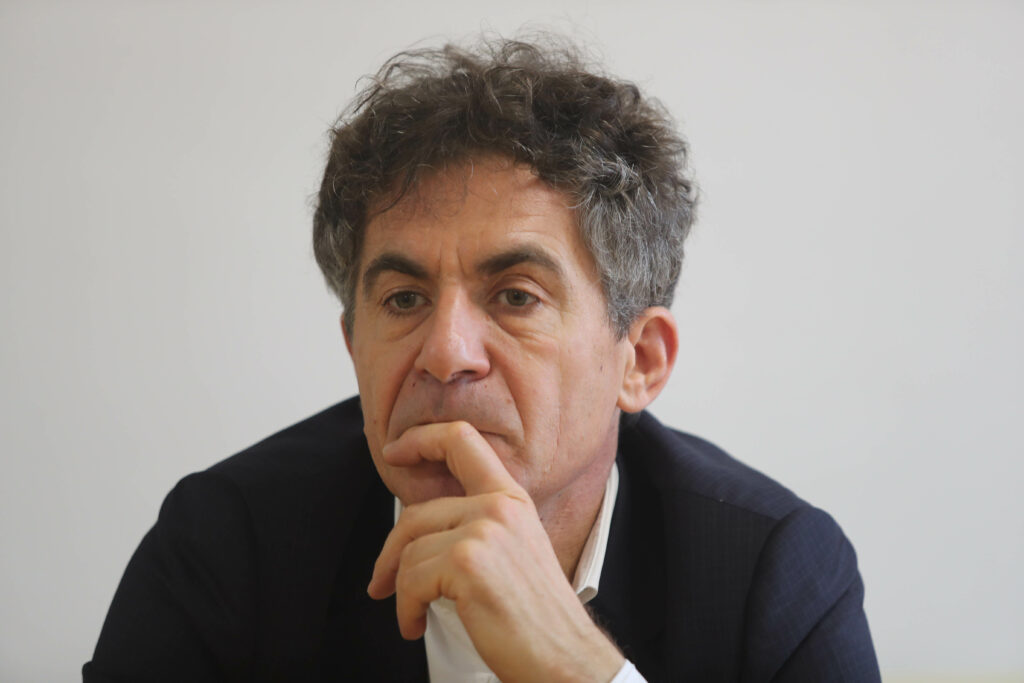The brainers

Etienne Klein – Physicist and philosopher
An alumnus of the École Centrale Paris and holder of a doctorate in the philosophy of science, Etienne Klein heads the matter science research laboratory at the CEA. He is a professor at the ECP and hosts the program La Conversation scientifique on France Culture. In 1994, he published Conversations avec le Sphinx, les paradoxes en physique, his first book. Numerous publications followed, including Il était sept fois la révolution, Albert Einstein et les autres in 2005, Le facteur temps ne sonne jamais deux fois in 2007, Discours sur l’origine de l’univers, in 2010, Anagrammes renversantes, ou le sens caché du monde, in 2011, D’où viennent les idées (scientifiques)? and En chercher Majorana, le physicien absolu, in 2013, Le Monde selon Étienne Klein in 2014… He took part in Objectif Mont-Blanc, sur les traces d’un géant, a program produced by Arte 2015. A mountaineer and endurance sports enthusiast, he has been taking part in the Ultra-Trail du Mont-Blanc races for several years now. Etienne Klein was named Chevalier de la Légion d’honneur in 2010, then Officier dans l’ordre national du Mérite and Commandeur des Palmes académiques in 2014.
This brainer takes part in round-table discussions, offers improvisation sessions and the following solo talks:
The origin of the Universe
Why is there so much interest in the question of origins, and therefore the origin of the entire Universe? It's because absolute origin - the passage from nothingness to being, if it ever took place - is the meeting point of two opposing movements of thought. On the one hand, we believe that if we knew the origin of the Universe, we would also know its entire history, and perhaps even the meaning of our existence. On the other hand, we're inclined to believe that a better understanding of the history of the universe is the only way to grasp its origins. The origin thus embodies both the solution and the problem, the key to everything and the most absolute mystery: it represents the answer to all our questions, while at the same time constituting the problem we can only solve once we've solved all the others...
Can we understand why mathematics is so effective in physics?
The idea that mathematics is the natural language of physics has become commonplace. However, it can be interpreted in at least two ways, which are not at all equivalent from a philosophical epistemological point of view: - either this language is thought of as being that of nature itself, which implies that those who study nature will have to assimilate it in order to understand it; - or, conversely, this language is thought of as being the language of man, and it is therefore necessarily in this language that the facts of nature will have to be translated in order to become comprehensible to us. Do recent advances in physics help to distinguish between these two approaches?
Where do scientific ideas come from?
Science is often presented - and sometimes thought of - as a cold monster capable of exorcising the imaginary, seen as a parasite, a cumbersome dross liable to sully the best intentions of reason. Doesn't the adjective “imaginary” (an imaginary patient...) refer to falsity, unreality, chimeras, illusions - in short, to all those things that science is dedicated to combating? But if such a caricature were accurate, where would the new ideas come from?